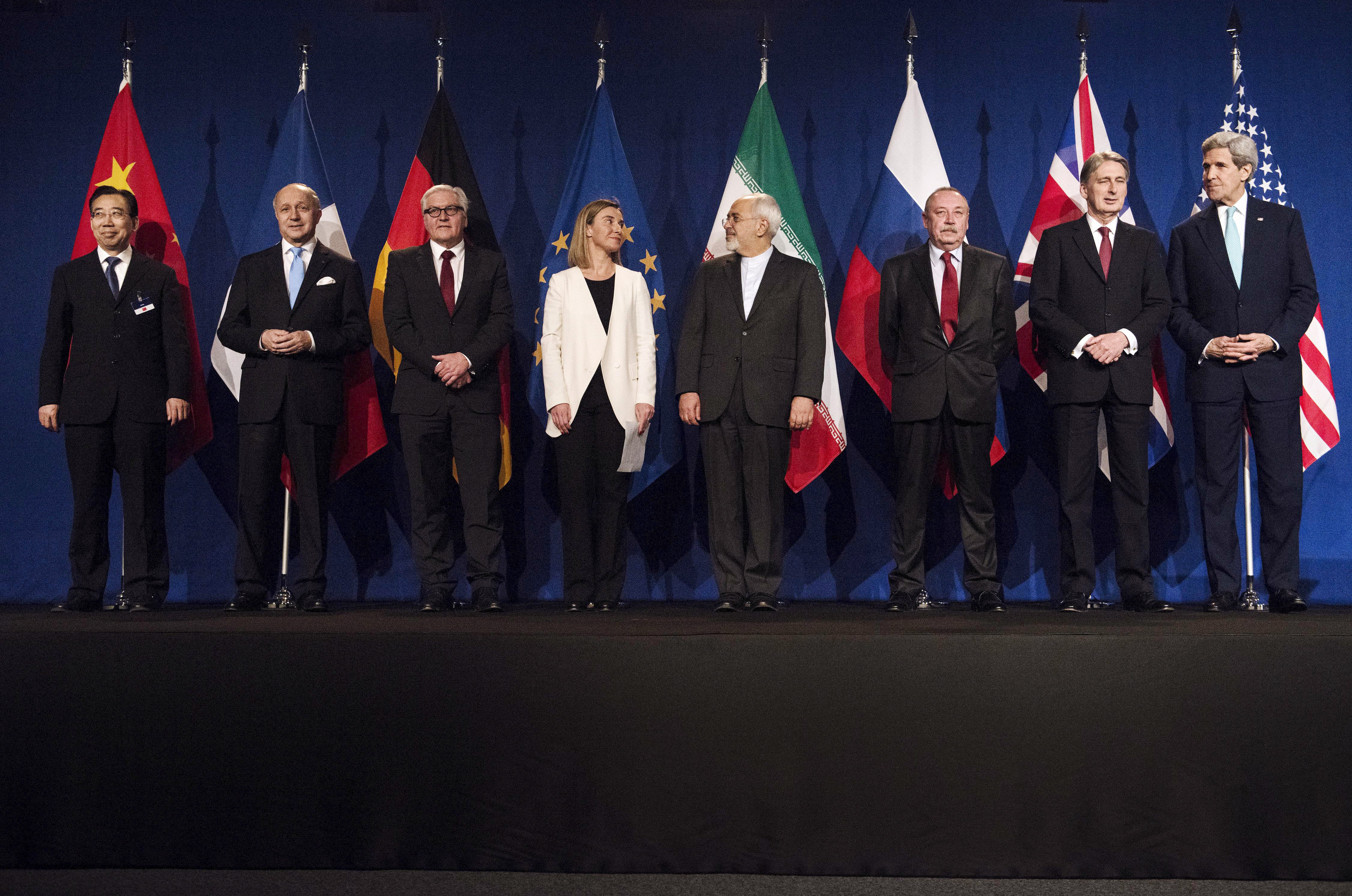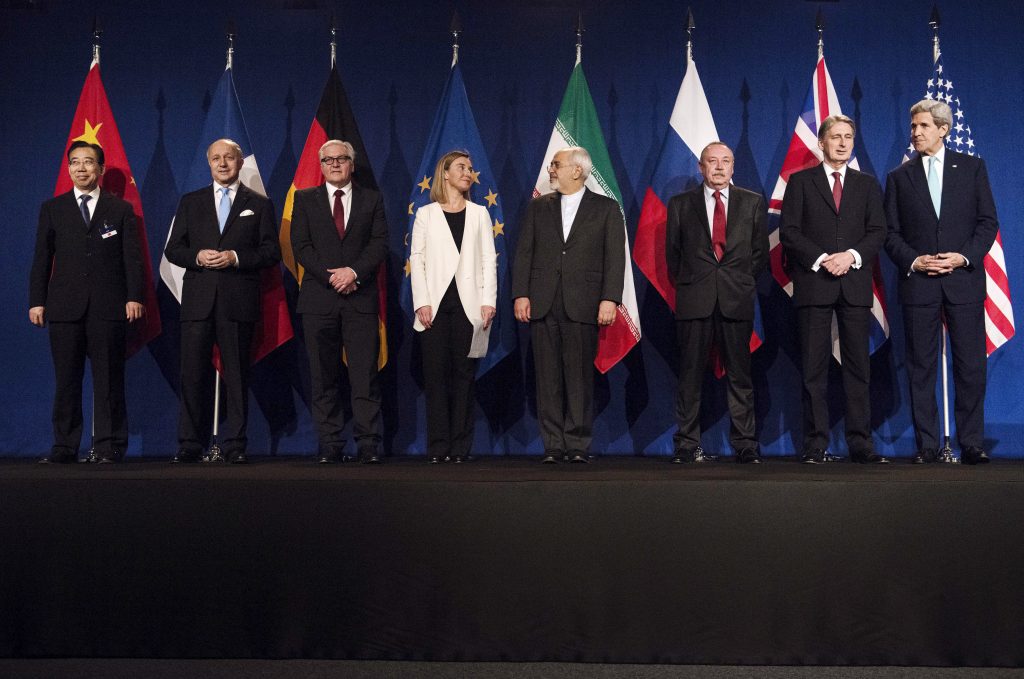
Veteran diplomat cites ‘a lot of advantages’ for the United States
A deal announced April 2 limiting Iran’s nuclear program while preventing it from developing a nuclear bomb in exchange for lifting economic sanctions “looks like a very good agreement,” says former US Undersecretary of State Thomas Pickering.
“My sense is that this is a good agreement and it has a lot of advantages for the United States and the rest of the P5+1,” Pickering, an Atlantic Council board member, told the New Atlanticist.
A comprehensive nuclear accord is to be drafted by June 30. Under the terms of the political framework agreement—the so-called Joint Comprehensive Plan of Action—announced in Lausanne, Switzerland:
- Iran’s breakout time to produce a nuclear bomb has been increased from two to three months to at least one year, for a duration of ten years;
- Iran will give up 97 percent of its nuclear stockpile;
- Iran will reduce its installed centrifuges by approximately two-thirds;
- Iran has agreed not to build any new facilities for the purpose of enriching uranium for fifteen years;
- For at least fifteen years, Iran will be allowed to enrich uranium only to the point where it can be used in the production of nuclear power for civilian purposes; and
- Inspectors from the United Nations watchdog, the International Atomic Energy Agency (IAEA), will regularly inspect all known nuclear facilities in Iran as well as any suspicious sites.
Iran has four potential pathways to building a nuclear bomb: an underground uranium enrichment facility at Fordow; the Natanz enrichment facility; the plutonium heavy-water reactor at Arak; and a covert route. The deal shuts off those pathways.
Under the April 2 agreement, Iran would limit operation of its uranium enrichment centrifuges to one site, Natanz, while converting the Fordow facility into a physics and technology center. In addition, the heavy water reactor at Arak will be redesigned so that it cannot produce the weapons-grade plutonium necessary to make a bomb.
In return, many economic sanctions imposed against Iran by the United States and the European Union will be lifted in a phased manner after the IAEA confirms Tehran’s compliance with the deal. The timeline for this to happen is unclear.
All past United Nations Security Council resolutions on the Iran nuclear issue will be lifted once Iran addresses all key concerns related to enrichment, Fordow, Arak, transparency, and possible military dimensions (PMD), allegations that Iran may have conducted nuclear weapons research in the past.
A new Security Council resolution will reestablish the core provisions in those earlier resolutions that deal with the transfer of sensitive technologies and activities. This resolution will also endorse the Joint Comprehensive Plan of Action and urge its full implementation.
“The Iranians get a very broad amount of sanctions relief. They won’t get what they hoped for, which was to get [rid of] a lot of sanctions that have to do with areas outside nonproliferation,” said Pickering. “There may be some disappointment at that.”
If Iran breaks its promises, a so-called snapback provision allows sanctions to be automatically reimposed.
US President Barack Obama said implementation of the agreement will be closely watched. “If Iran cheats, the world will know it,” he said.
Pickering spoke in an interview with the New Atlanticist’s Ashish Kumar Sen. Excerpts below:
Q: Do we have a good deal?
Pickering: It looks like a very good agreement, from what I can see from the early State Department reports on the agreement’s various technical pieces. It seems to me to be balanced. It has a lot of advantages for the United States and the rest of the P5+1.
Q: What is the most significant part of the announcement?
Pickering: The number of areas that extend over fifteen and twenty-five years as compared with all of the hoopla that went on a couple of weeks ago about a ten-year agreement is, in my view, important.
Q: Does the deal address the concerns of opponents in Tehran and Washington?
Pickering: I think so. The Iranians get a very broad amount of sanctions relief. They won’t get what they hoped for, which was to get [rid of] a lot of sanctions that have to do with areas outside nonproliferation. There may be some disappointment at that. There is a snapback provision, which as the State Department portrays it, seems to be pretty sure that the UN resolutions will be reimposed if there is a dispute and a failure to resolve that dispute.
Q: The Iranians had been hesitant to reveal too many details of the agreement at this stage.
Pickering: It seems to me that we have a lot of detail, more than we had expected.
Q: What happens next?
Pickering: There will be a very intensive negotiation that takes place with respect to putting this into the form of an agreement document. At the same time, we will see what the various parties who have declared their opposition to any agreement will think of this agreement and what they will do about it.
Q: How will Israel respond to this deal?
Pickering: The last time the Israelis jumped on an agreement was a week before the Joint Plan of Action was announced. Netanyahu said it was the worst agreement ever made, and a year later he pleaded with us to continue the agreement in force and not proceed further with the comprehensive negotiations. If this is an indication of the degree to which they are serious about opposing an agreement, then obviously there is something wanting there.
Q: Do you expect the Saudis will now ask for something similar to what Iran has received, as some Saudi officials have suggested?
Pickering: We’ll have to wait and see. The creation and implementation of domestic centrifuge capacity is long-term and very time-consuming, and technically very demanding. It’s hardly worthwhile because there are significant numbers of producers of nuclear fuel around the world who are ready to sell at very advantageous prices, including the Russians, the French, the European enrichment consortiums, and the United States. The Saudis have not toyed with the kind of military program that the Iranians seem to have toyed with, so there is absolute trust and confidence in the Saudis behaving themselves and they should enjoy the benefit of an international market that is strongly in their favor. If they would like to ensure themselves of access, why don’t they invest in one of the existing arrangements? That would be in itself another degree of assurance. They wouldn’t have to put all the time, trouble, and money in developing an independent capacity.
Q: Were you surprised by the revelation that the Iranians were at a two-to-three-month breakout period?
Pickering: No. I think that was consistent with what people were saying. In fact, at one point we thought it was weeks before the Joint Plan of Action went in. A breakout period is a very conservative judgment. It has nothing to do with a bomb, it only has to do with the creation of enough highly enriched uranium that could then be used in a bomb.
Q: Has the agreement addressed the four pathways Iran has to a bomb?
Pickering: I think so. The IAEA has a wide right to enter into facilities all over Iran that might constitute a nuclear program outside of the announced one.
Q: The lifting of sanctions is subject to IAEA verifications. How quickly could that happen?
Pickering: That’s one of the areas where there is uncertainty, but presumably there will be questions answered in comments as to how far implementation must go before sanctions can be lifted.
Q: How does the Obama administration go about addressing congressional concerns towards the deal?
Pickering: I would think and hope that the Obama administration will follow on the announcement and material already produced, which is quite helpful, with their own briefings in Congress.
Ashish Kumar Sen is a staff writer at the Atlantic Council.
Image: From left to right: Chinese Ambassador to the United Nations Wu Hailong, French Foreign Minister Laurent Fabius, German Foreign Minister Frank-Walter Steinmeier, European Union High Representative for Foreign Affairs and Security Policy Federica Mogherini, Iranian Foreign Minister Javad Zarif, Russian Deputy Political Director Alexey Karpov, British Foreign Secretary Philip Hammond, and US Secretary of State John F. Kerry arrive for nuclear talks in Lausanne, Switzerland, April 2. Iran and world powers reached a framework on curbing Iran's nuclear program that will allow further negotiations towards a final agreement. (Reuters/Brendan Smialowski)
